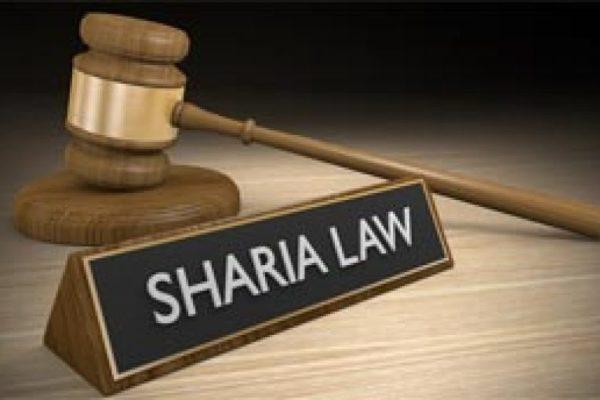By Lawal Sule Abdullahi, Ph.D.
Sharia Law has wider global scope in the history of human development. It is the worldwide applied law in all the continents. Sharia law covers Islamic Civil and Criminal Laws being practiced officially or vice versa in many countries of the world Nigeria inclusive.
Islamic Sharia Law has been playing an iterative role for many centuries right from the pre to post-colonial era of the Nigerian legal system. Sharia law gets so many avenues and provisions on human and animal rights, family life, social, political and economic approach for the development of humanity anytime and anywhere.
Take Chapter IV – Fundamental Rights – as typical examples of the number of Nigerian Muslims who want to have the clause “Islamic personal law” to be replaced with “Islamic law”.
The clause “Islamic law” is meant for application in both civil and criminal justice from the lower courts, “courts of analogy” up to the “superior courts of record”.
In this instance, Section 262 (2) where it spelled “the Shari‘a Court of Appeal shall be competent to decide” should immediately, be inserted; “adjudicate on criminal justice under Shari‘a law and” to decide on: a) any question of Islamic law, etc. with other few relevant assertions.
Also, Section 277 (2) under the jurisdiction of states’ Shari’a Courts of Appeal shall get the same modification, etc.
An ideal Nigerian Muslim doesn’t only expect the application of Islamic law to terminate at the Shari’a Court of Appeal level, we call for the establishment of the Federal Shari’a Court of Appeal in all the states of the federation including the FCT with headquarters in Abuja.
We also want a panel of learned Shari’a justices in the Supreme Court of Nigeria with the same qualifications as designed in both sections 261 and 276 of the Nigerian Constitution according to the National Judicial Council (NJC) Guidelines for Appointment of Judges dated November 3, 2014.
Henceforth, Rule Four Section 4(a) & (e) – having looked at always an acute shortage of learned personnel in Arabic Language and grammar – that only graduates in Arabic and Islamic Studies are of highest competency to adjudicate putting in mind that the two disciplines are the important key to a clear and successful dispensation of justice in the legal arena.
The establishment of such courts and expansion of the Islamic legal system will cater to the needs of millions of Nigerian citizens and as well, decongest our ‘prisons’ now known as “Correctional Centres”.
Both civil and criminal justice have a wider scope and have been practiced peacefully and successfully in some states of the federation and the FCT as enshrined in Section 6 (j) & (k) of the 1999 Constitution.
Similarly, Section 46 (i) & (k) of the constitution reads: “Any person who alleges that any of the provisions of this chapter (Chapter IV) has been or likely to be contravened in any state, may apply to a “high court in that state for redress”. The clause “may apply to a high court in that state for redress” should be replaced with “may apply to a state High or Appeal Court with appropriate jurisdiction in that state for redress”.
Thus, i) to decongest the states and FCT high courts from large volumes of retrogressive applications for review as means to the creation of delay and diversionary tactics detriment to speedy dispensation of Justice.
ii) to give armful right for appellate courts of appropriate jurisdiction to address issues before them in a more competent, learned and speedy manner in adjudication for justice.
Lastly, it is necessary to explain that there is no ‘danger’, as claimed by some citizens, in giving a Nigerian citizen his right at all times. I commend the National Assembly and all other stakeholders for the amendment effort and call their attention to give any Nigerian individual or folk their respective rights.
Dr. Lawal Sule Abdullahi writes from Islamic Awareness Centre, Zaria

 Join Daily Trust WhatsApp Community For Quick Access To News and Happenings Around You.
Join Daily Trust WhatsApp Community For Quick Access To News and Happenings Around You.


